
OR
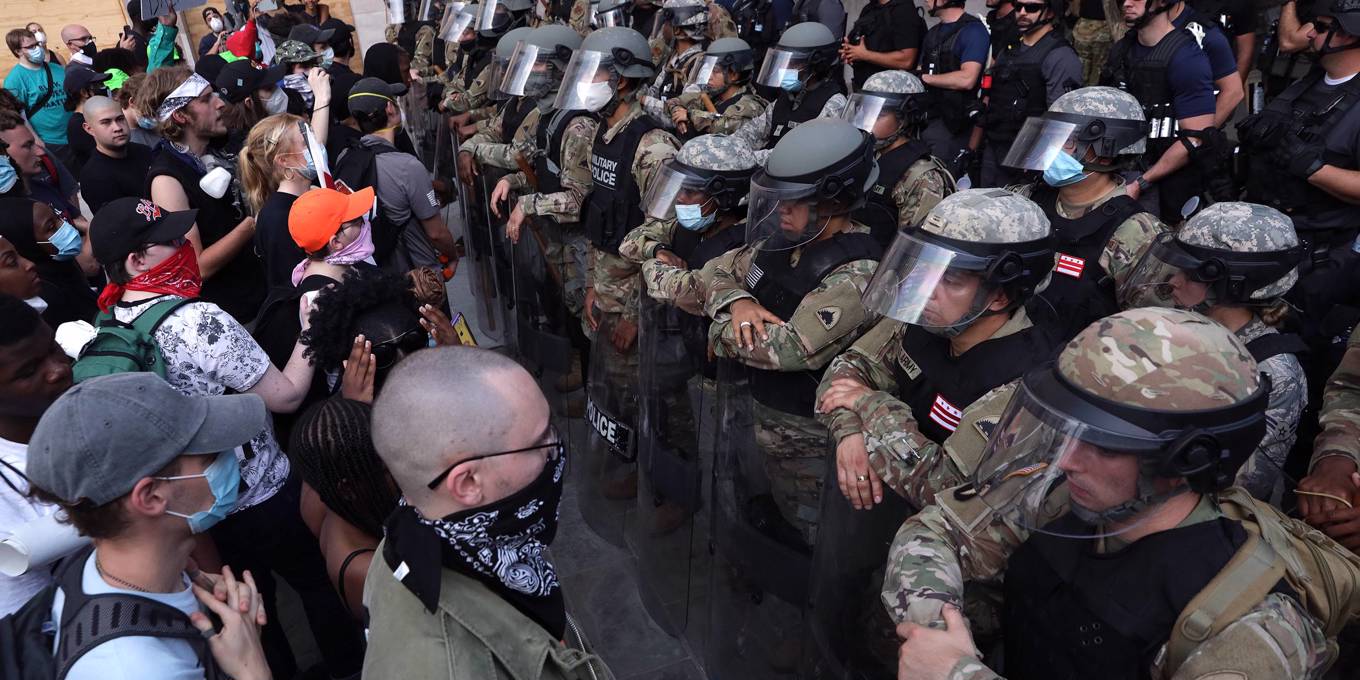

Sigmar Gabriel
Sigmar Gabriel, a former German foreign minister and leader of the Social Democratic Party, is Chairman of Atlantik-Brücke, a member of the supervisory board of Deutsche Bank, and a media writer for Holtzbrinck Publishing Group.news@myrepublica.com
Because America is still more powerful economically and militarily than its two leading competitors (Russia and China) combined, its elections are always globally significant. But never before has one posed such an acute threat to the rest of the world.
BERLIN – Unlike in Jules Verne’s Around the World in 80 Days, the modern world’s journey over the next 80 days will be more of a slog than an adventure. But it will culminate in an event of global and historic consequence.
In less than three months, the United States will hold its 59th quadrennial presidential election. Because America is still more powerful economically and militarily than its two leading competitors (Russia and China) combined, its elections are always globally significant. But never before has one posed such an acute threat to the rest of the world.
There is no question that the re-election of President Donald Trump would endanger both the US and the world. Moreover, there is ample reason to fear that a close election could drive the US into a deep, prolonged constitutional crisis, and perhaps into civil violence.
Similarly, if Trump secures only an Electoral College victory while losing the popular vote—as he did in 2016—neither his challenger, Joe Biden, nor the majority of the country that opposes him is likely to accept the outcome as readily as Hillary Clinton did in 2016, and as Al Gore did in 2000. And if the Supreme Court steps in again to choose the winner, as it did when it picked George W. Bush over Gore, massive nationwide protests seem almost certain. In response to this, Trump would almost certainly unleash US federal law enforcement troops, as he has already done in Portland and other cities.
Alternatively, because Biden consistently leads Trump in opinion polls, Trump could try to use the COVID-19 pandemic as a pretext for postponing or otherwise corrupting the election. He has already spent the summer trying to denigrate the validity of mail-in ballots in order to delegitimize the November 3 vote in advance. Even though these actions have met with strong resistance, Trump is laying the groundwork to mobilize his supporters and cling to the White House regardless of the election’s outcome.
Riots and looting of the kind recently witnessed in Portland and Chicago inevitably will help Trump politically as he pursues this strategy. He has already been willing to deploy Department of Homeland Security forces in downtown Portland to intimidate comparatively small groups of (mostly peaceful) protesters. The predictable (and probably intended) result was an expansion of the protests and an escalation of violence. Trump’s message to middle-class white suburbanites is clear: here is a president who keeps law and order.
The use of federal resources to intimidate the population also feeds into Trump’s narrative that the elections cannot be held fairly and calmly without being manipulated through voter fraud by his opponents. Images of heavily armed right-wing militias showing up at peaceful protests are a harbinger of what awaits the country this fall.
This version of the US, whose domestic divisions have increasingly spilled over into its foreign policy, is perhaps the greatest security threat facing the rest of the world today. At a time of growing global risks—from pandemics and climate change to nuclear proliferation and Chinese and Russian assertiveness—a US political implosion would be the ultimate threat multiplier. America is simply too important economically, politically, and militarily to take a break or, worse, to become an unpredictable spoiler in global conflicts, owing to its government’s need to play to a narrow domestic constituency.
One can only hope that the election will produce a decisive winner both in the Electoral College and in the popular vote. Yet, even then, tallying the final result may take time, owing to the massive increase in mail-in voting that is expected. Every ballot that has a postmark of November 2 or 3 (depending on the state) will be considered valid, which means that the final result will not be known until after Election Day. During that window of uncertainty, either or both campaigns may try to claim victory based on the current vote count.
In any case, there is no chance that Trump will wait graciously in the Oval Office for days or weeks to receive the final tally. In interviews, he has already issued vague statements suggesting that he will not leave the White House if he loses; indeed, he seems to be actively preparing for such a scenario. If he follows through, the world’s leading superpower will find itself facing a protracted—and perhaps intractable—constitutional crisis.
The old Western alliance of democratic, industrialized countries has made many mistakes in recent years, and these have undermined its international reputation. But no institution is more fundamental to the West’s wider appeal than free and fair elections. If the former de facto leader of the West can no longer manage to uphold even this principle, the rest of the world may well opt for other political systems.
Sigmar Gabriel, a former German foreign minister and leader of the Social Democratic Party, is Chairman of Atlantik-Brücke, a member of the supervisory board of Deutsche Bank, and a media writer for Holtzbrinck Publishing Group
Copyright: Project Syndicate, 2020.
www.project-syndicate.org
You May Like This
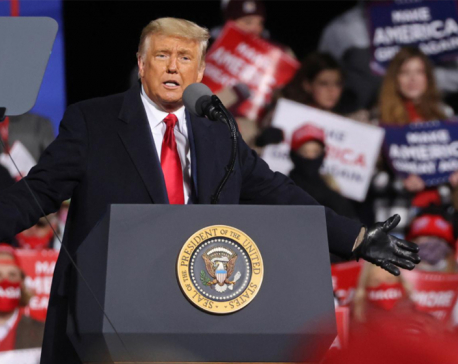
Trump briefly admits election defeat, clings to flailing legal strategy
WASHINGTON/WILMINGTON, Del., Nov 16: President Donald Trump on Sunday briefly acknowledged losing the U.S. election in a morning Twitter post but... Read More...
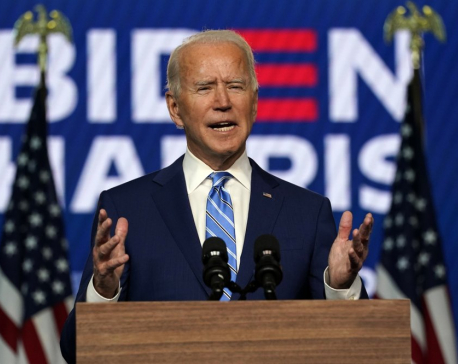
2020 Latest: Biden says ‘no one’ will take US democracy away
Democrat Joe Biden says, “No one is going to take our democracy away from us.” His comment came after President... Read More...
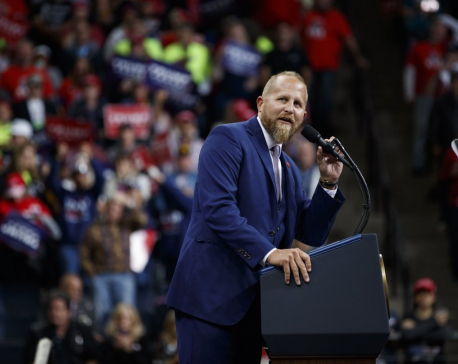
Trump ex-campaign boss hospitalized amid threat to harm self
FORT LAUDERDALE, Fla., Sept 28: President Donald Trump’s former campaign manager Brad Parscale has been hospitalized after he threatened to harm... Read More...



Just In
- 550,000 people acquire work permits till April of current fiscal year
- Fixing a win by outlawing dissent damages democracy
- MoHP cautions docs working in govt hospitals not to work in private ones
- Over 400,000 tourists visited Mustang by road last year
- 19 hydropower projects to be showcased at investment summit
- Global oil and gold prices surge as Israel retaliates against Iran
- Sajha Yatayat cancels CEO appointment process for lack of candidates
- Govt padlocks Nepal Scouts’ property illegally occupied by NC lawmaker Deepak Khadka







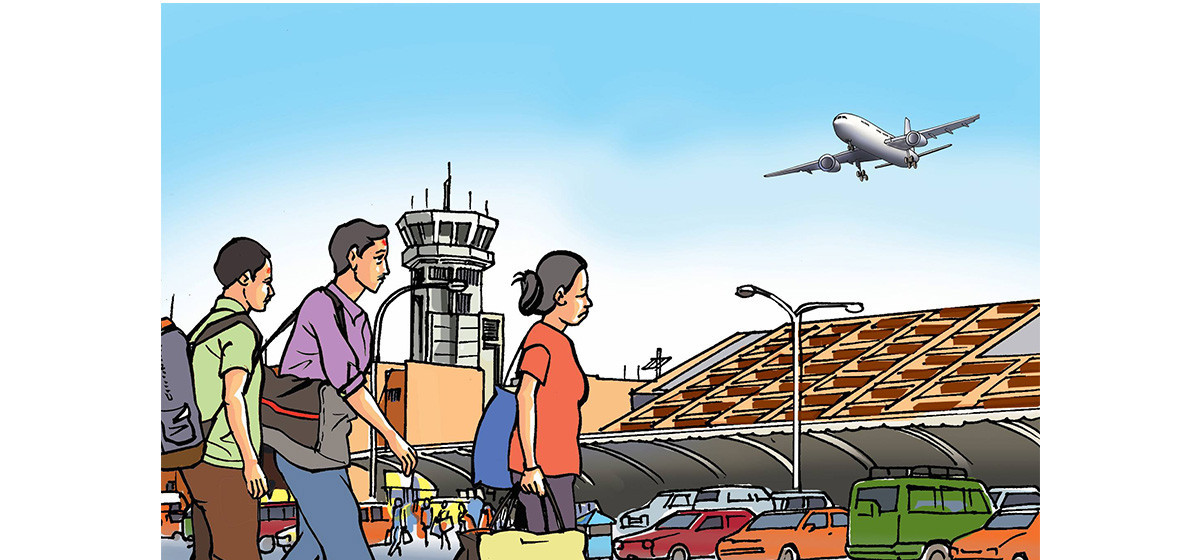

_20220508065243.jpg)



Leave A Comment